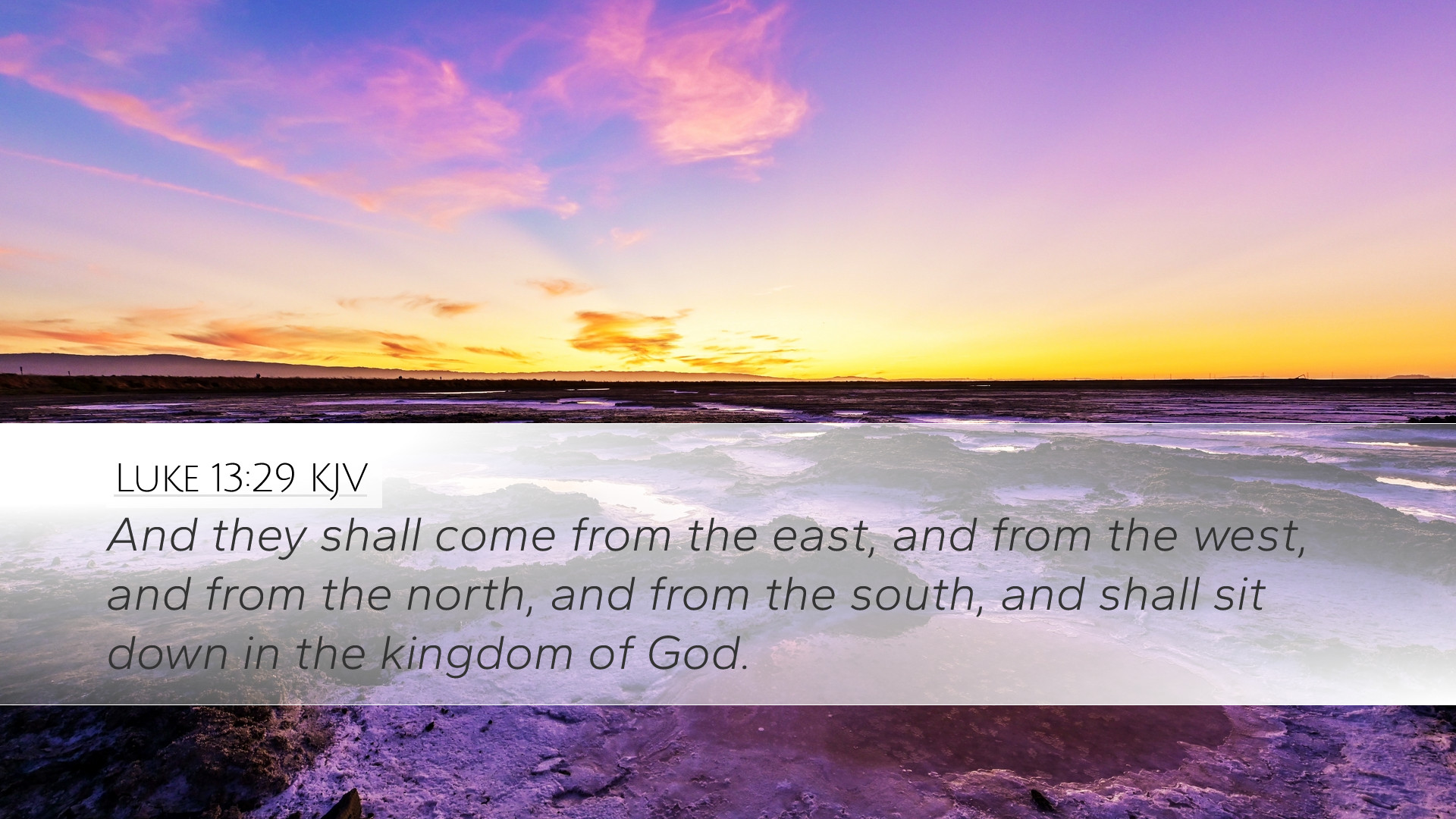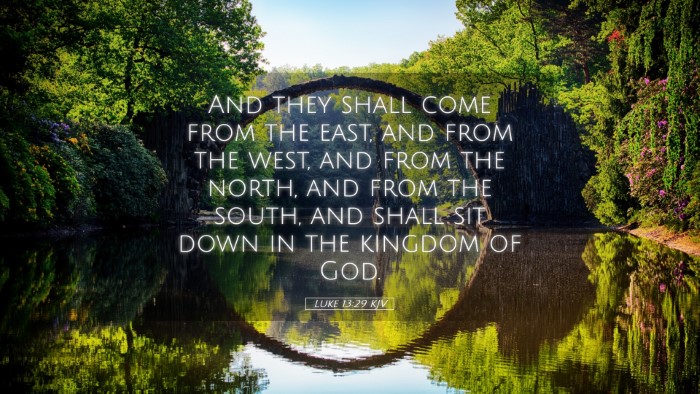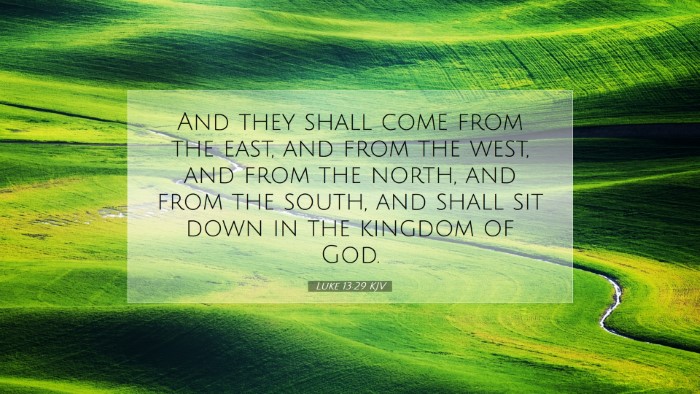Commentary on Luke 13:29
Luke 13:29 states, "And they shall come from the east and west, and from the north and south, and shall sit down in the kingdom of God." This verse serves as a profound declaration regarding the inclusivity of God's kingdom and the breadth of salvation. It illustrates key theological themes about the nature of the kingdom and the fate of those who are outside it. We shall explore insights from public domain commentaries, focusing on various facets of this scripture.
Contextual Background
The context of this passage is crucial for understanding its implications. Jesus speaks to a crowd that includes both Jews and Gentiles. He addresses the misconceptions of the Jewish people regarding their exclusive claim to God's kingdom. This commentary will examine the historical background and the significance of Jesus’ message as understood by various commentators.
Matthew Henry's Perspective
Matthew Henry emphasizes the universality of Christ’s mission. He notes that the words “from the east and west, and from the north and south” indicate that the gospel is intended for all nations and peoples. Henry writes that no one should presume on their standing in the kingdom simply because of their lineage or heritage. Instead, it is a spiritual rebirth that grants access to the kingdom.
“We must not expect to be received among the children of God while we remain in our sins; we must come from afar, leaving our old ways behind.”
Albert Barnes' Insights
Albert Barnes expands on the theme of repentance and belief as prerequisites for entering the kingdom. He notes that Jesus is inviting all who are willing to come, irrespective of their social or ethnic backgrounds. This invitation highlights the essence of faith and repentance as the means to obtain eternal life. Barnes emphasizes that this verse both comforts the faithful and warns those who reject Christ.
“The great body of the Jewish people, in their blindness and unbelief, may be compared to those who would attempt to enter the banquet uninvited.”
Adam Clarke's Analysis
Adam Clarke provides a detailed examination of the geographical references in the verse. He explains that the mention of directions signifies the totality of humanity's inclusion in the kingdom. Clarke encourages a deeper reflection on the concept of God's grace being extended beyond the traditional boundaries of Israel to all humanity. He argues that this is a definitive statement about God's sovereignty over all creation.
“Wherever there is a soul seeking God, whether Jew or Gentile, they shall have a place in His kingdom.”
Theological Implications
This verse raises significant theological questions regarding the nature of salvation. The commentators agree on the notion that God's kingdom is open to all who accept Christ's invitation. The following points summarize the insights shared:
- Inclusivity of Salvation: The text highlights the radical inclusivity of the gospel message.
- Faith and Repentance: Responsiveness to God’s grace is essential for entry into the kingdom.
- Kingdom of God: The kingdom is not confined to any specific group; it is a divine reality encompassing the faithful from all walks of life.
Practical Applications
The application of Luke 13:29 extends into the life of the church today. It challenges believers to examine their attitudes toward inclusivity in their communities. Here are some practical insights:
- Embrace Diversity: Churches should actively embrace diversity and seek to welcome individuals from different backgrounds.
- Nurture Repentance: Stress the importance of genuine repentance and faith rather than heritage or identity.
- Global Mission: Encourage a global approach to missions, recognizing that God calls everyone to worship Him.
Conclusion
Luke 13:29 is a powerful reminder of the expansive and inclusive nature of God’s kingdom. By drawing from the insights of Matthew Henry, Albert Barnes, and Adam Clarke, we see the multifaceted dimensions of this verse. It calls believers to reject exclusivity and embody the radical love of Christ that invites all to share in the blessings of His kingdom. This commentary serves as an invitation to pastors, students, theologians, and Bible scholars to reflect on their own understanding and practice of faith in light of scripture.


